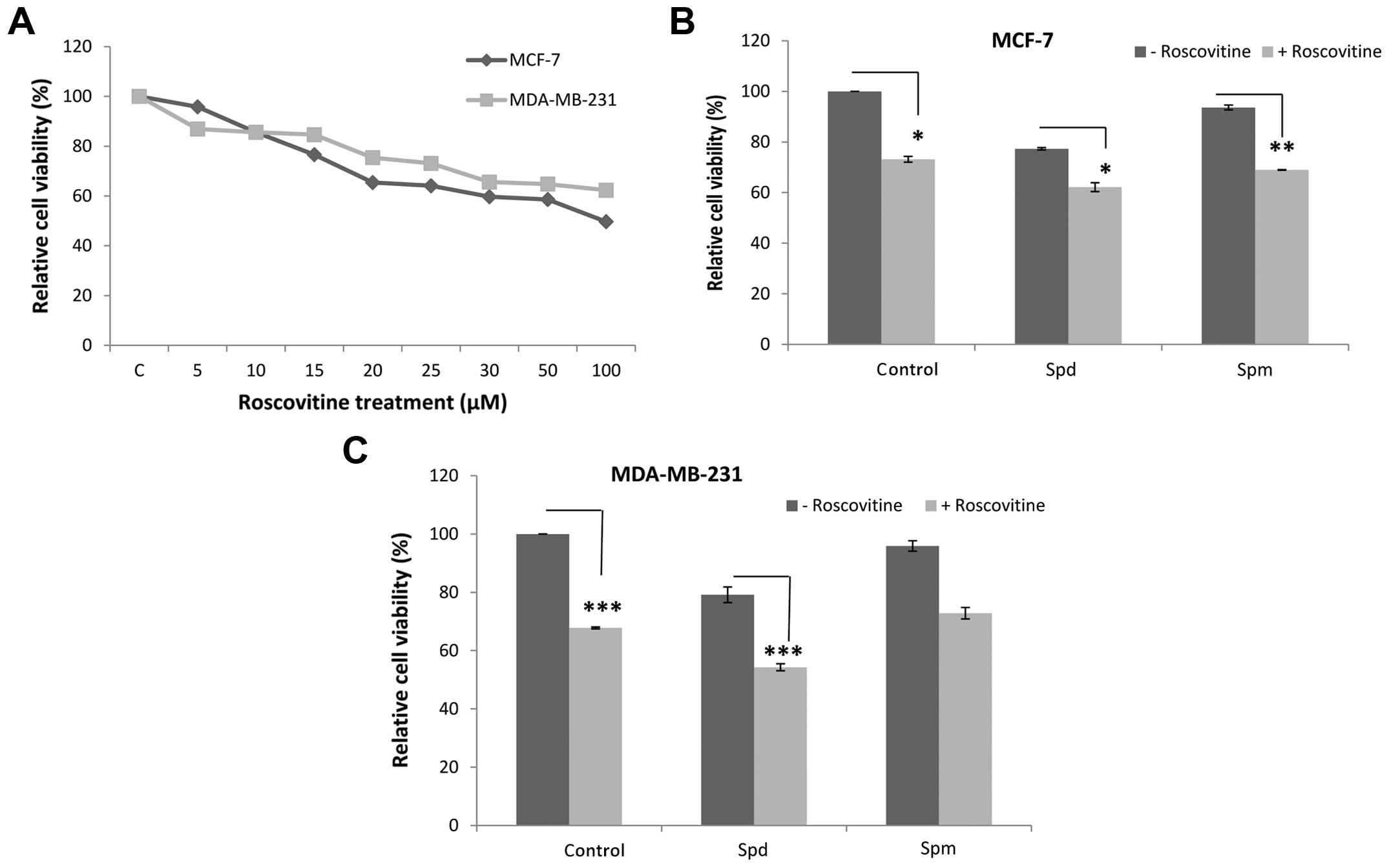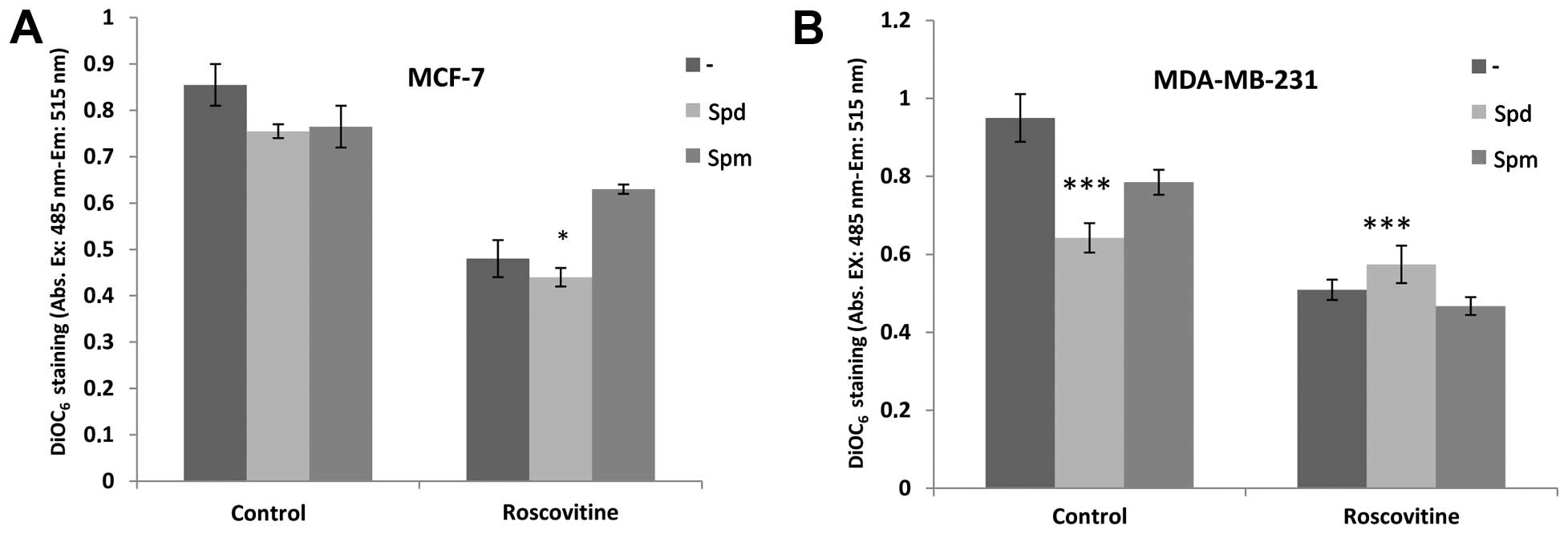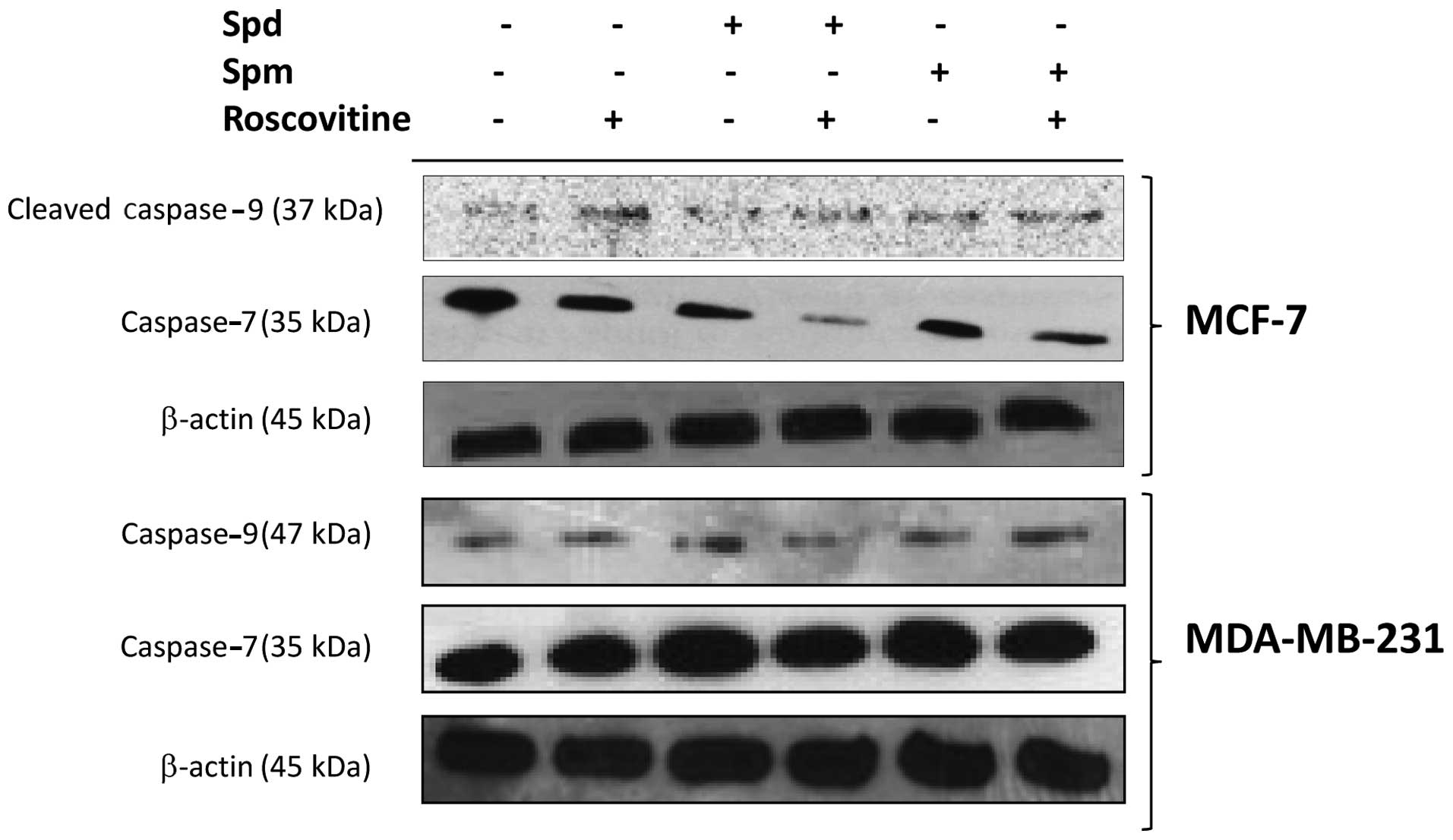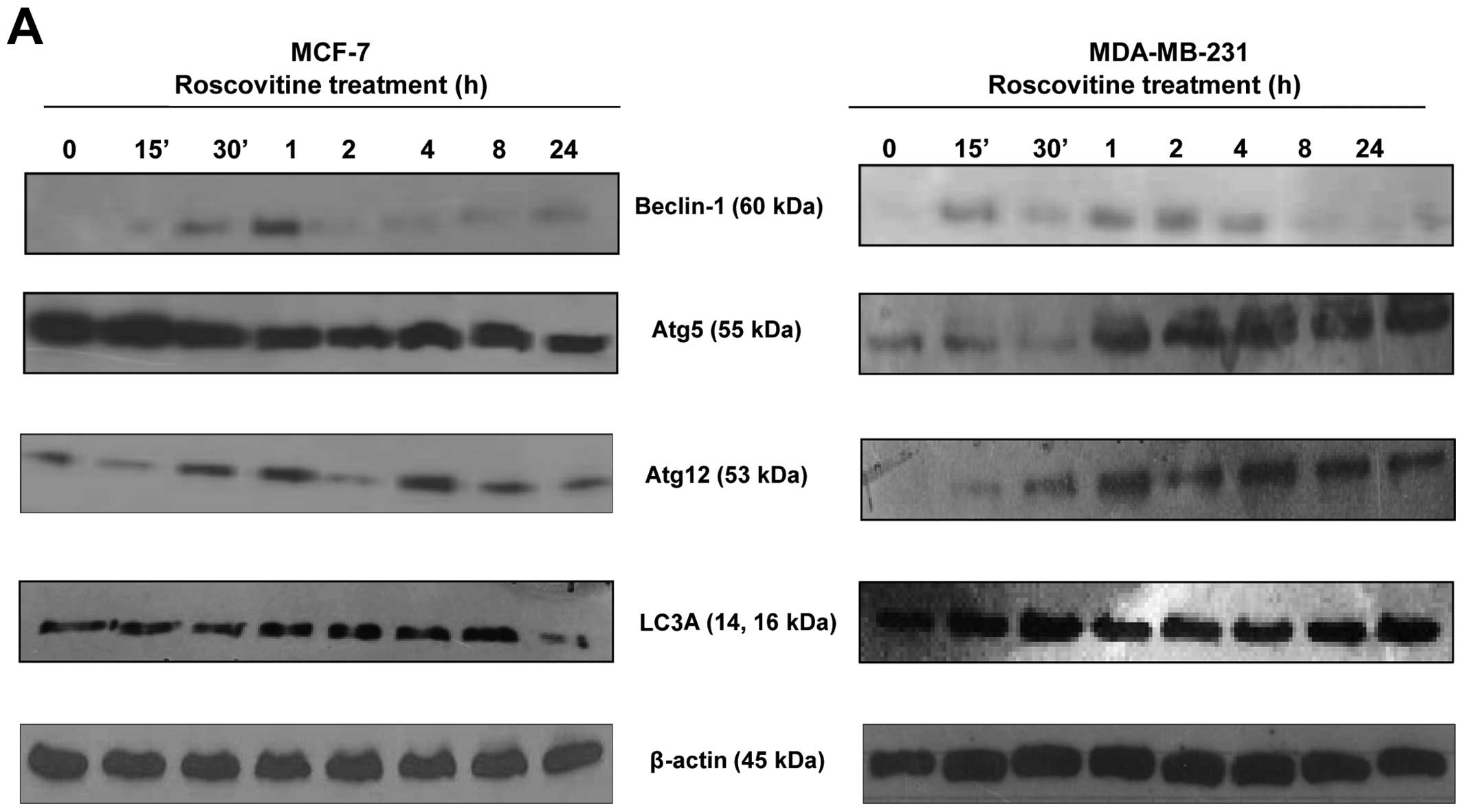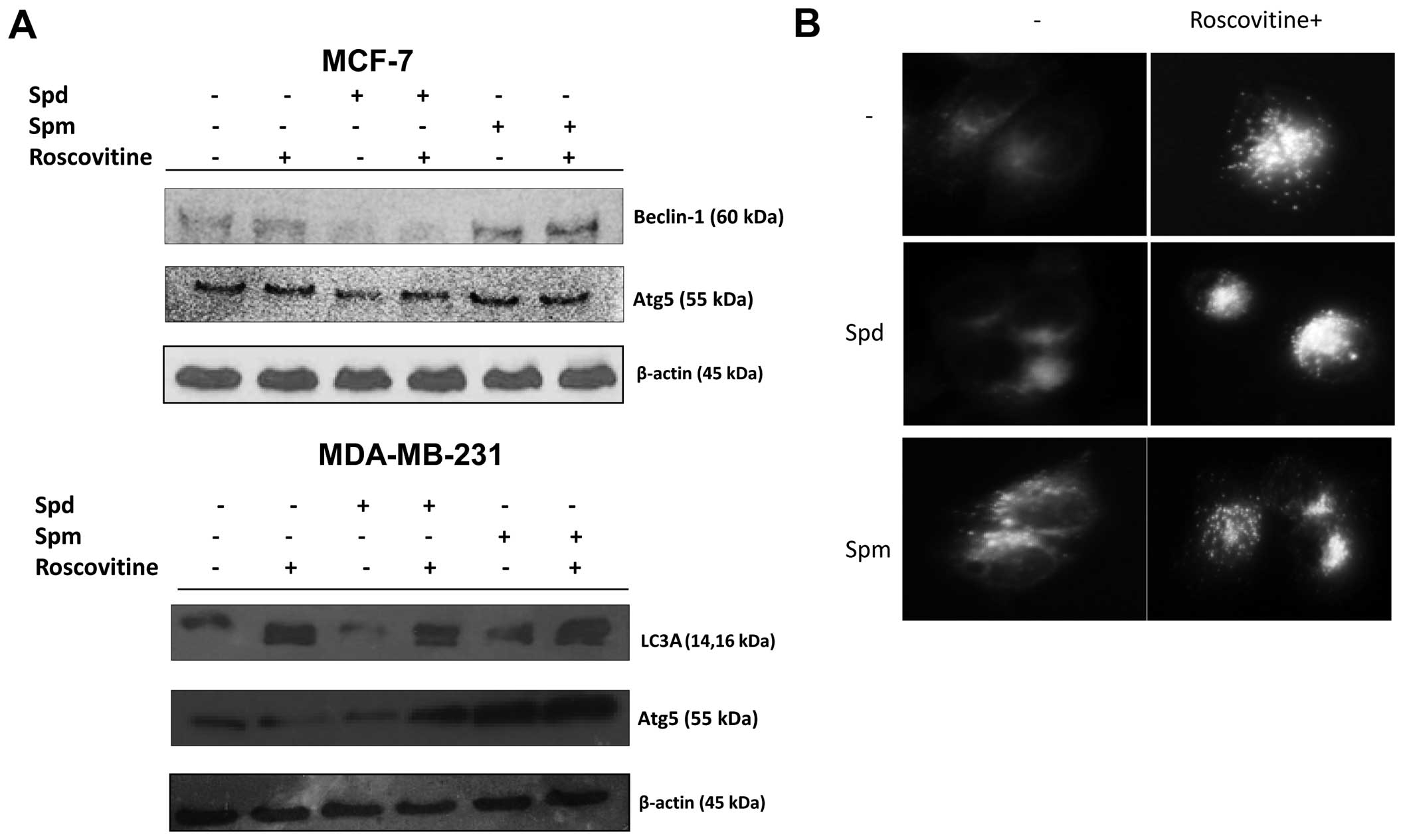|
1
|
Jemal A, Siegel R, Ward E, Hao Y, Xu J and
Thun MJ: Cancer statistics, 2009. CA Cancer J Clin. 59:225–249.
2009. View Article : Google Scholar : PubMed/NCBI
|
|
2
|
Lerner LJ and Jordan VC: Development of
antiestrogens and their use in breast cancer: eighth Cain memorial
award lecture. Cancer Res. 50:4177–4189. 1990.PubMed/NCBI
|
|
3
|
Jaiyesimi IA, Buzdar AU, Decker DA and
Hortobagyi GN: Use of tamoxifen for breast cancer: twenty-eight
years later. J Clin Oncol. 13:513–529. 1995.PubMed/NCBI
|
|
4
|
Buzdar AU and Hortobagyi G: Update on
endocrine therapy for breast cancer. Clin Cancer Res. 4:527–534.
1998.PubMed/NCBI
|
|
5
|
Nair BC and Vadlamudi RK: Regulation of
hormonal therapy resistance by cell cycle machinery. Gene Ther Mol
Biol. 12:3952008.PubMed/NCBI
|
|
6
|
Al-Minawi AZ, Saleh-Gohari N and Helleday
T: The ERCC1/XPF endonuclease is required for efficient
single-strand annealing and gene conversion in mammalian cells.
Nucleic Acids Res. 36:1–9. 2008. View Article : Google Scholar :
|
|
7
|
Hunt T: You never know: Cdk inhibitors as
anti-cancer drugs. Cell Cycle. 7:3789–3790. 2008. View Article : Google Scholar : PubMed/NCBI
|
|
8
|
Aldoss IT, Tashi T and Ganti AK:
Seliciclib in malignancies. Expert Opin Investig Drugs.
18:1957–1965. 2009. View Article : Google Scholar : PubMed/NCBI
|
|
9
|
Wojciechowski J, Horky M, Gueorguieva M
and Wesierska-Gadek J: Rapid onset of nucleolar disintegration
preceding cell cycle arrest in roscovitine-induced apoptosis of
human MCF-7 breast cancer cells. Int J Cancer. 106:486–495. 2003.
View Article : Google Scholar : PubMed/NCBI
|
|
10
|
Wesierska-Gadek J, Gueorguieva M and Horky
M: Roscovitine-induced up-regulation of p53AIP1 protein precedes
the onset of apoptosis in human MCF-7 breast cancer cells. Mol
Cancer Ther. 4:113–124. 2005.PubMed/NCBI
|
|
11
|
Appleyard MV, O’Neill MA, Murray KE, et
al: Seliciclib (CYC202, R-roscovitine) enhances the antitumor
effect of doxorubicin in vivo in a breast cancer xenograft model.
Int J Cancer. 124:465–472. 2009. View Article : Google Scholar
|
|
12
|
Charollais RH and Mester J: Resumption of
cell cycle in BALB/c-3T3 fibroblasts arrested by polyamine
depletion: relation with ‘competence’ gene expression. J Cell
Physiol. 137:559–564. 1988. View Article : Google Scholar : PubMed/NCBI
|
|
13
|
Harada JJ and Morris DR: Cell cycle
parameters of Chinese hamster ovary cells during exponential,
polyamine-limited growth. Mol Cell Biol. 1:594–599. 1981.PubMed/NCBI
|
|
14
|
Pegg AE: Polyamine metabolism and its
importance in neoplastic growth and a target for chemotherapy.
Cancer Res. 48:759–774. 1988.PubMed/NCBI
|
|
15
|
Deng W, Jiang X, Mei Y, et al: Role of
ornithine decarboxylase in breast cancer. Acta Biochim Biophys Sin
(Shanghai). 40:235–243. 2008. View Article : Google Scholar
|
|
16
|
Hoggard N and Green CD: Polyamines and
growth regulation of cultured human breast cancer cells by 17
beta-oestradiol. Mol Cell Endocrinol. 46:71–78. 1986. View Article : Google Scholar : PubMed/NCBI
|
|
17
|
Manni A: Polyamine involvement in breast
cancer phenotype. In Vivo. 16:493–500. 2002.PubMed/NCBI
|
|
18
|
Bello-Fernandez C, Packham G and Cleveland
JL: The ornithine decarboxylase gene is a transcriptional target of
c-Myc. Proc Natl Acad Sci USA. 90:7804–7808. 1993. View Article : Google Scholar : PubMed/NCBI
|
|
19
|
Celano P, Baylin SB, Giardiello FM, Nelkin
BD and Casero RA Jr: Effect of polyamine depletion on c-myc
expression in human colon carcinoma cells. J Biol Chem.
263:5491–5494. 1988.PubMed/NCBI
|
|
20
|
Kondo Y, Kanzawa T, Sawaya R and Kondo S:
The role of autophagy in cancer development and response to
therapy. Nat Rev Cancer. 5:726–734. 2005. View Article : Google Scholar : PubMed/NCBI
|
|
21
|
Gozuacik D and Kimchi A: Autophagy and
cell death. Curr Top Dev Biol. 78:217–245. 2007. View Article : Google Scholar : PubMed/NCBI
|
|
22
|
Maiuri MC, Zalckvar E, Kimchi A and
Kroemer G: Self-eating and self-killing: crosstalk between
autophagy and apoptosis. Nat Rev Mol Cell Biol. 8:741–752. 2007.
View Article : Google Scholar : PubMed/NCBI
|
|
23
|
Madeo F, Eisenberg T, Büttner S,
Ruckenstuhl C and Kroemer G: Spermidine: a novel autophagy inducer
and longevity elixir. Autophagy. 6:160–162. 2010. View Article : Google Scholar : PubMed/NCBI
|
|
24
|
Hobbs CA and Gilmour SK: High levels of
intracellular polyamines promote histone acetyltransferase activity
resulting in chromatin hyperacetylation. J Cell Biochem.
77:345–360. 2000. View Article : Google Scholar : PubMed/NCBI
|
|
25
|
Hobbs CA, Paul BA and Gilmour SK:
Deregulation of polyamine biosynthesis alters intrinsic histone
acetyltransferase and deacetylase activities in murine skin and
tumors. Cancer Res. 62:67–74. 2002.PubMed/NCBI
|
|
26
|
Wesierska-Gadek J, Wandl S, Kramer MP,
Pickem C, Krystof V and Hajek SB: Roscovitine up-regulates p53
protein and induces apoptosis in human HeLaS(3) cervix carcinoma
cells. J Cell Biochem. 105:1161–1171. 2008. View Article : Google Scholar : PubMed/NCBI
|
|
27
|
Wesierska-Gadek J, Gueorguieva M,
Wojciechowski J and Horky M: Cell cycle arrest induced in human
breast cancer cells by cyclin-dependent kinase inhibitors: a
comparison of the effects exerted by roscovitine and olomoucine.
Pol J Pharmacol. 56:635–641. 2004.PubMed/NCBI
|
|
28
|
Meijer L, Borgne A, Mulner O, et al:
Biochemical and cellular effects of roscovitine, a potent and
selective inhibitor of the cyclin-dependent kinases cdc2, cdk2 and
cdk5. Eur J Biochem. 243:527–536. 1997. View Article : Google Scholar : PubMed/NCBI
|
|
29
|
Fischer PM and Gianella-Borradori A: CDK
inhibitors in clinical development for the treatment of cancer.
Expert Opin Investig Drugs. 12:955–970. 2003. View Article : Google Scholar : PubMed/NCBI
|
|
30
|
Hahntow IN, Schneller F, Oelsner M, et al:
Cyclin-dependent kinase inhibitor Roscovitine induces apoptosis in
chronic lymphocytic leukemia cells. Leukemia. 18:747–755. 2004.
View Article : Google Scholar : PubMed/NCBI
|
|
31
|
Decker T, Hipp S, Hahntow I, Schneller F
and Peschel C: Expression of cyclin E in resting and activated
B-chronic lymphocytic leukaemia cells: cyclin E/cdk2 as a potential
therapeutic target. Br J Haematol. 125:141–148. 2004. View Article : Google Scholar : PubMed/NCBI
|
|
32
|
Benson C, White J, De Bono J, et al: A
phase I trial of the selective oral cyclin-dependent kinase
inhibitor seliciclib (CYC202; R-Roscovitine), administered twice
daily for 7 days every 21 days. Br J Cancer. 96:29–37. 2007.
View Article : Google Scholar
|
|
33
|
Zaletok S, Alexandrova N, Berdynskykh N,
et al: Role of polyamines in the function of nuclear transcription
factor NF-kappaB in breast cancer cells. Exp Oncol. 26:221–225.
2004.PubMed/NCBI
|
|
34
|
Wang Y and Casero RA Jr: Mammalian
polyamine catabolism: a therapeutic target, a pathological problem,
or both? J Biochem. 139:17–25. 2006. View Article : Google Scholar : PubMed/NCBI
|
|
35
|
Persson L and Rosengren E: Increased
formation of N1-acetylspermidine in human breast cancer. Cancer
Lett. 45:83–86. 1989. View Article : Google Scholar : PubMed/NCBI
|
|
36
|
Cañizares F, Salinas J, de las Heras M, et
al: Prognostic value of ornithine decarboxylase and polyamines in
human breast cancer: correlation with clinicopathologic parameters.
Clin Cancer Res. 5:2035–2041. 1999.PubMed/NCBI
|
|
37
|
Casero RA Jr and Marton LJ: Targeting
polyamine metabolism and function in cancer and other
hyperproliferative diseases. Nat Rev Drug Discov. 6:373–390. 2007.
View Article : Google Scholar : PubMed/NCBI
|
|
38
|
Ali S and Coombes RC: Endocrine-responsive
breast cancer and strategies for combating resistance. Nat Rev
Cancer. 2:101–112. 2002. View
Article : Google Scholar
|
|
39
|
Loi S, Haibe-Kains B, Desmedt C, et al:
Definition of clinically distinct molecular subtypes in estrogen
receptor-positive breast carcinomas through genomic grade. J Clin
Oncol. 25:1239–1246. 2007. View Article : Google Scholar : PubMed/NCBI
|
|
40
|
Sutherland RL and Musgrove EA: CDK
inhibitors as potential breast cancer therapeutics: new evidence
for enhanced efficacy in ER+ disease. Breast Cancer Res.
11:1122009. View Article : Google Scholar
|
|
41
|
Rogatsky I, Trowbridge JM and Garabedian
MJ: Potentiation of human estrogen receptor alpha transcriptional
activation through phosphorylation of serines 104 and 106 by the
cyclin A-CDK2 complex. J Biol Chem. 274:22296–22302. 1999.
View Article : Google Scholar : PubMed/NCBI
|
|
42
|
Trowbridge JM, Rogatsky I and Garabedian
MJ: Regulation of estrogen receptor transcriptional enhancement by
the cyclin A/Cdk2 complex. Proc Natl Acad Sci USA. 94:10132–10137.
1997. View Article : Google Scholar : PubMed/NCBI
|
|
43
|
Moffatt J, Hashimoto M, Kojima A, et al:
Apoptosis induced by 1′-acetoxychavicol acetate in Ehrlich ascites
tumor cells is associated with modulation of polyamine metabolism
and caspase-3 activation. Carcinogenesis. 21:2151–2157. 2000.
View Article : Google Scholar
|
|
44
|
Marra M, Lombardi A, Agostinelli E, et al:
Bovine serum amine oxidase and spm potentiate docetaxel and
interferon-alpha effects in inducing apoptosis on human cancer
cells through the generation of oxidative stress. Biochim Biophys
Acta. 1783:2269–2278. 2008. View Article : Google Scholar : PubMed/NCBI
|
|
45
|
Arisan ED, Coker A and Palavan-Ünsal N:
Polyamine depletion enhances the roscovitine-induced apoptosis
through the activation of mitochondria in HCT116 colon carcinoma
cells. Amino Acids. 42:655–665. 2012. View Article : Google Scholar
|
|
46
|
Xie X, Tome ME and Gerner EW: Loss of
intracellular putrescine pool-size regulation induces apoptosis.
Exp Cell Res. 230:386–392. 1997. View Article : Google Scholar : PubMed/NCBI
|
|
47
|
Stefanelli C, Bonavita F, Stanic I, et al:
Spermine causes caspase activation in leukaemia cells. FEBS Lett.
437:233–236. 1998. View Article : Google Scholar : PubMed/NCBI
|
|
48
|
Stefanelli C, Stanic I, Zini M, et al:
Polyamines directly induce release of cytochrome c from heart
mitochondria. Biochem J. 347:875–880. 2000. View Article : Google Scholar : PubMed/NCBI
|
|
49
|
Ouyang L, Shi Z, Zhao S, et al: Programmed
cell death pathways in cancer: a review of apoptosis, autophagy and
programmed necrosis. Cell Prolif. 45:487–498. 2012. View Article : Google Scholar : PubMed/NCBI
|
|
50
|
Green DR and Kroemer G: The
pathophysiology of mitochondrial cell death. Science. 305:626–629.
2004. View Article : Google Scholar : PubMed/NCBI
|
|
51
|
Yenugonda VM, Deb TB, Grindrod SC, et al:
Fluorescent cyclin-dependent kinase inhibitors block the
proliferation of human breast cancer cells. Bioorg Med Chem.
19:2714–2725. 2011. View Article : Google Scholar : PubMed/NCBI
|
|
52
|
Ringer L, Sirajuddin P, Yenugonda VM, et
al: VMY-1-103, a dansylated analog of purvalanol B, induces
caspase-3-dependent apoptosis in LNCaP prostate cancer cells.
Cancer Biol Ther. 10:320–325. 2010. View Article : Google Scholar : PubMed/NCBI
|
|
53
|
Liu B, Wu JM, Li J, et al: Polygonatum
cyrtonema lectin induces murine fibrosarcoma L929 cell apoptosis
and autophagy via blocking Ras-Raf and PI3K-Akt signaling pathways.
Biochimie. 92:1934–1938. 2010. View Article : Google Scholar : PubMed/NCBI
|
|
54
|
Cheng Y, Qiu F, Huang J, Tashiro S,
Onodera S and Ikejima T: Apoptosis-suppressing and
autophagy-promoting effects of calpain on oridonin-induced L929
cell death. Arch Biochem Biophys. 475:148–155. 2008. View Article : Google Scholar : PubMed/NCBI
|
|
55
|
Lambert LA, Qiao N, Hunt KK, et al:
Autophagy: a novel mechanism of synergistic cytotoxicity between
doxorubicin and roscovitine in a sarcoma model. Cancer Res.
68:7966–7974. 2008. View Article : Google Scholar : PubMed/NCBI
|
|
56
|
Amaravadi RK, Yu D, Lum JJ, et al:
Autophagy inhibition enhances therapy-induced apoptosis in a
Myc-induced model of lymphoma. J Clin Invest. 117:326–336. 2007.
View Article : Google Scholar : PubMed/NCBI
|
|
57
|
Boya P, González-Polo RA, Casares N, et
al: Inhibition of macroautophagy triggers apoptosis. Mol Cell Biol.
25:1025–1040. 2005. View Article : Google Scholar : PubMed/NCBI
|
|
58
|
Abedin MJ, Wang D, McDonnell MA, Lehmann U
and Kelekar A: Autophagy delays apoptotic death in breast cancer
cells following DNA damage. Cell Death Differ. 14:500–510. 2007.
View Article : Google Scholar
|
|
59
|
Jia K and Levine B: Autophagy is required
for dietary restriction-mediated life span extension in C. elegans.
Autophagy. 3:597–599. 2007. View Article : Google Scholar : PubMed/NCBI
|
|
60
|
Meléndez A, Tallóczy Z, Seaman M,
Eskelinen EL, Hall DH and Levine B: Autophagy genes are essential
for dauer development and life-span extension in C. elegans.
Science. 301:1387–1391. 2003. View Article : Google Scholar : PubMed/NCBI
|
|
61
|
Tavernarakis N, Pasparaki A, Tasdemir E,
Maiuri MC and Kroemer G: The effects of p53 on whole organism
longevity are mediated by autophagy. Autophagy. 4:870–873. 2008.
View Article : Google Scholar : PubMed/NCBI
|
|
62
|
Tian ZY, Xie SQ, Mei ZH, Zhao J, Gao WY
and Wang CJ: Conjugation of substituted naphthalimides to
polyamines as cytotoxic agents targeting the Akt/mTOR signal
pathway. Org Biomol Chem. 7:4651–4660. 2009. View Article : Google Scholar : PubMed/NCBI
|
|
63
|
Eisenberg T, Knauer H, Schauer A, et al:
Induction of autophagy by spermidine promotes longevity. Nat Cell
Biol. 11:1305–1314. 2009. View Article : Google Scholar : PubMed/NCBI
|















